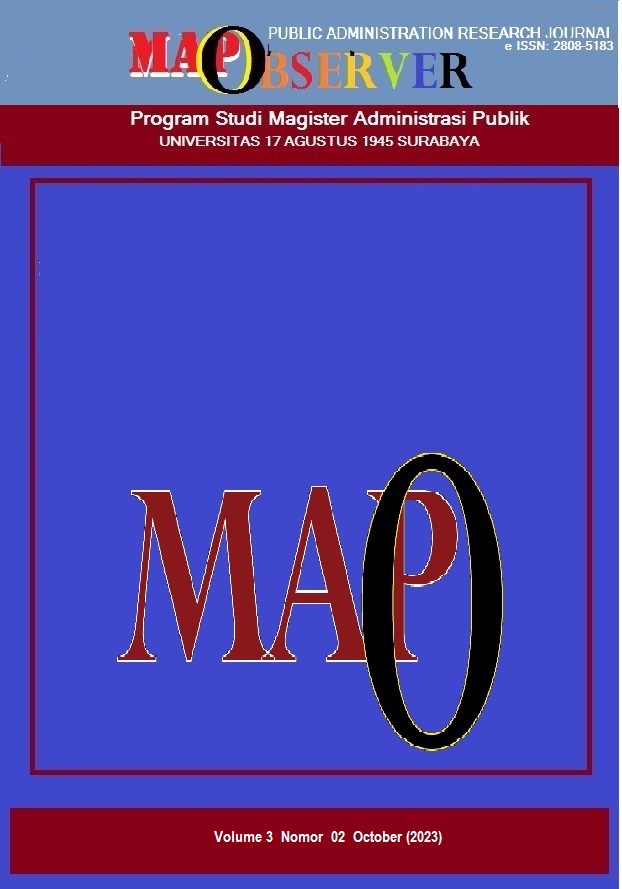COMMUNITY-BASED DEVELOPMENT ANALYSIS IN COMMUNITY RESOURCE DEVELOPMENT
DOI:
https://doi.org/10.30996/mapo.v3i02.9587Keywords:
development, human resourceAbstract
Community-based development is known as the concept of building a more open space so that the community would be able to be involved in the development process so that development could adjust the need to utilize the potential to improve quality of life. The research model used is qualitative research, with research location in Selorejo village, dau sub-district, Malang regency, through interviews and documentation, in determining the sample, researchers used the purposive sampling, data analysis used analytical models of Miles and Huberman, while testing the validity of the data is done using triangulation techniques. Research concludes 1). community awareness to actively be involved in every community-based development process is already well supported by a culture of cooperation is still strong. 2). Efforts to improve human resource quality in Selorejo village are still low. There's an effort to optimize human quality development via education and health such as creating Early Education, Kindergarten, and Islamic Elementary Schools directed to orange farmers, and skill training for Youth groups and women groups.
Downloads
References
Sumbi, Kornelius, and Firman Firdausi. "Analisis Pembangunan Berbasis Masyarakat dalam Pengembangan Sumber Daya Masyarakat." JISIP: Jurnal Ilmu Sosial dan Ilmu Politik 5.2 (2016).
Sumbi, K., & Firdausi, F. (2016). Analisis Pembangunan Berbasis Masyarakat dalam Pengembangan Sumber Daya Masyarakat. JISIP: Jurnal Ilmu Sosial dan Ilmu Politik, 5(2).
SUMBI, Kornelius; FIRDAUSI, Firman. Analisis Pembangunan Berbasis Masyarakat dalam Pengembangan Sumber Daya Masyarakat. JISIP: Jurnal Ilmu Sosial dan Ilmu Politik, 2016, 5.2.
Downloads
Published
How to Cite
Issue
Section
License
-
The MAP Observer journal allows authors to retain the copyright of their papers without limitation. Authors may grant publishers non-exclusive publishing rights to publish articles. Granting first publishing rights to publishers also qualifies as unlimited copyright (because there are no restrictions imposed by publishers on author copyright).
-
Formal legal provisions for access to digital articles from these electronic journals are subject to the terms of the Creative Commons Attribution-ShareAlike (CC BY-SA) license, which means MAPO Observer Journal has the right to store, change formats, maintain in a database, maintain and publish articles without asking. permission from the Author as long as the Author's name is the owner of the Copyright.
-
Printed manuscripts and electronic publications are open access for educational, research and library purposes. Apart from these purposes, the editorial board is not responsible for violations of copyright law.









